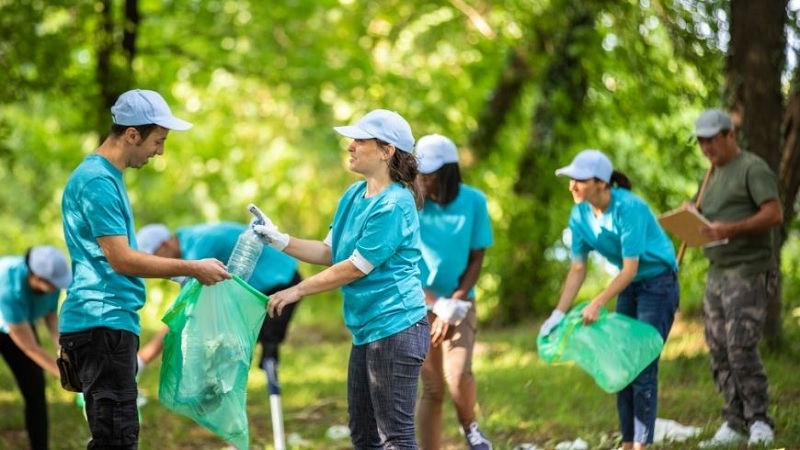Green Habits of Eco-Friendly People

Living sustainably has become increasingly important today as we face pressing environmental challenges and the need to protect our planet’s resources for future generations. Sustainable living encompasses a range of practices aimed at reducing our ecological footprint and living in harmony with nature. At the forefront of this movement are individuals who have adopted highly sustainable habits, serving as inspiring examples for others to follow. Therefore, here are some of the most effective habits of highly sustainable people that will shed light on the choices they make and the impact they have on the environment. By incorporating these habits into our lives, we can contribute to a greener and more sustainable future.
Conscious consumption
Highly sustainable people are mindful of their consumption habits and strive to minimize their environmental impact. They prioritize buying products with minimal packaging, opting for reusable alternatives whenever possible. They make informed choices, considering the environmental and ethical implications of their purchases. From choosing organic and locally sourced food to investing in durable and energy-efficient appliances, they understand that their consumption decisions have a significant impact on the planet.
Energy efficiency
Sustainable individuals recognize the importance of reducing energy consumption and maximizing efficiency. They consciously try to conserve energy in their daily routines by turning off lights when not in use, unplugging electronics, and using energy-efficient appliances. They also harness renewable energy sources like solar power to meet their electricity needs. By adopting these practices, they not only save on energy costs but also significantly reduce their carbon footprint.
Locally sourced and plant-based diets
Highly sustainable people understand the environmental impact of food choices. They prioritize locally sourced, seasonal, and organic produce, supporting local farmers and reducing the carbon emissions associated with long-distance transportation. Many also adopt plant-based or vegetarian diets, as the livestock industry significantly contributes to greenhouse gas emissions. By embracing these dietary choices and even checking out practical weight loss meal delivery ideas that will help them control their weight and promote local food simultaneously, they promote sustainable agriculture and contribute to mitigating climate change.
Sustainable transportation
Highly sustainable people prioritize sustainable transportation options. They choose to walk, bike, or use public transportation whenever feasible, reducing their reliance on fossil fuel-powered vehicles. If they do need to drive, they opt for hybrid or electric vehicles that emit fewer greenhouse gases. They also support the development of infrastructure that promotes biking and walking, advocating for more sustainable urban planning and reduced car dependency.
Waste reduction and recycling
Reducing waste and promoting recycling are crucial aspects of sustainable living. Highly sustainable individuals adopt strategies to minimize their waste production, such as using reusable water bottles, shopping bags, and food containers. They compost organic waste, reducing the amount of trash sent to landfills. Additionally, they actively participate in recycling programs and encourage others to do the same, ensuring that valuable resources are conserved and repurposed.
Water conservation
Water is a precious resource, and highly sustainable individuals are mindful of their water consumption. They employ water-saving techniques such as installing low-flow fixtures, fixing leaks promptly, and collecting rainwater for irrigation. They also make conscious choices regarding landscaping, opting for native plants that require less water. By conserving water, they contribute to the preservation of this vital resource and promote sustainability in their communities.
Advocacy and education
Highly sustainable individuals go beyond personal actions and actively engage in advocacy and education. They raise awareness about environmental issues in their communities, encouraging others to adopt sustainable practices. They participate in local initiatives, join environmental organizations, and support policies that promote renewable energy, waste reduction, and conservation. Through their actions and influence, they inspire others to make positive changes for the planet.
Mindfulness and connection with nature
Sustainable living goes beyond tangible actions; it also involves cultivating a deep connection with nature. Highly sustainable people spend time in nature, appreciating its beauty and recognizing the importance of its preservation. They practice mindfulness, living in the present moment and making conscious choices that align with their values. By fostering a sense of connection and gratitude for the natural world, they become even more motivated to protect and preserve it.
Collaboration and community engagement
Highly sustainable individuals understand the value of collaboration and community engagement in achieving meaningful change. They actively seek opportunities to collaborate with like-minded individuals, local organizations, and community groups to amplify their impact. They participate in community clean-up events, organize workshops on sustainable living, and initiate projects that promote environmental awareness and action. By working together with others, they create a ripple effect of positive change, inspiring a broader movement towards sustainability and fostering a sense of collective responsibility for the well-being of our planet.
The habits of highly sustainable people demonstrate the transformative power of individual actions in creating a more sustainable world. By exploring all these things and incorporating them into our lives, we can become catalysts for positive change. Let us follow in the footsteps of these inspiring individuals, knowing that our collective efforts can make a significant difference in building a greener and more sustainable future for generations to come.